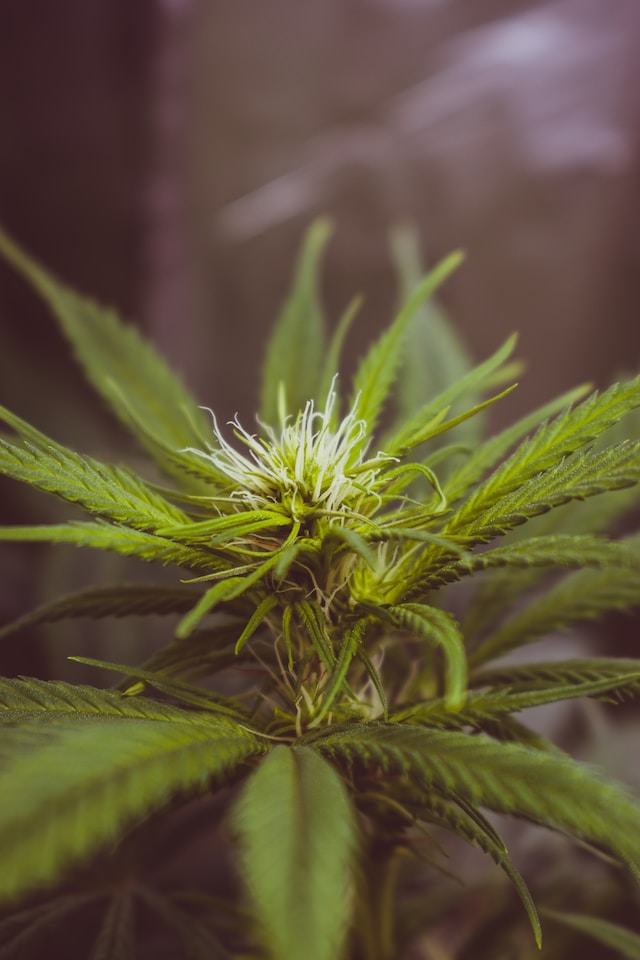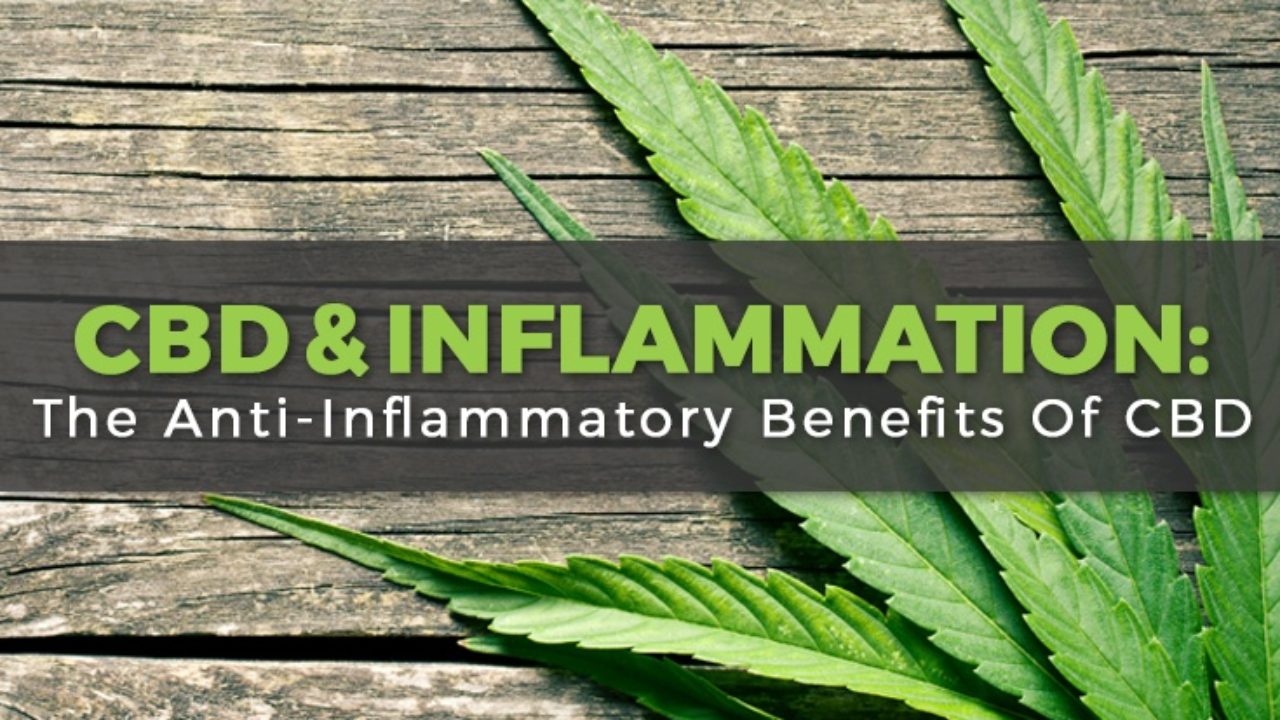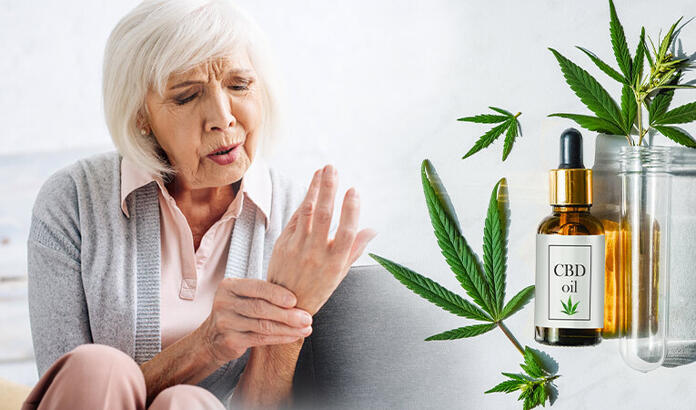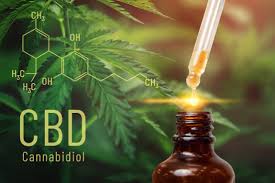Overview of CBD and its benefits
In today’s fast-paced world, stress, anxiety, and various health issues have become all too common. Many people are seeking natural alternatives to traditional treatments, turning to CBD, a plant-based compound that has gained popularity for its potential health benefits. CBD, short for cannabidiol, is derived from the hemp plant and does not produce the psychoactive effects commonly associated with its cousin, THC. Instead, it offers many potential benefits that can help unlock the healing power within.
CBD has been found to interact with the body’s endocannabinoid system, a complex network of receptors and neurotransmitters that plays a crucial role in maintaining homeostasis. By stimulating these receptors, CBD may help regulate various bodily functions and promote overall well-being. Its non-intoxicating nature makes it a viable option for those seeking relief without the mind-altering effects of THC.
One of the primary reasons people are turning to CBD is its potential to provide pain relief. Whether it’s chronic pain from conditions like arthritis or acute pain from injuries, CBD has shown promise in alleviating discomfort. In addition to pain management, CBD may help reduce anxiety and stress, promoting a sense of calm and relaxation. This makes it appealing for those seeking natural alternatives to traditional anxiety medications.
Another area where CBD shines is in its potential to improve sleep. Many individuals struggle with insomnia and other sleep disorders, negatively affecting their overall health and well-being. CBD’s calming properties may help regulate sleep patterns and promote a more restful night’s sleep.
Beyond these well-known benefits, CBD also possesses anti-inflammatory properties, which can benefit those dealing with conditions such as arthritis or inflammation-related pain. Additionally, there is ongoing research into the potential benefits of CBD for chronic conditions such as cancer, fibromyalgia, and epilepsy.
Notably, CBD has also shown promise in the realm of mental health. Research suggests that CBD may effectively alleviate symptoms of depression, anxiety disorders, and even PTSD.
Moreover, CBD has found its way into the world of skincare. With its potential acne-fighting properties and ability to relieve conditions like eczema, CBD-infused skincare products have gained popularity among those seeking a natural approach to skincare.
In the following sections, we will explore in more detail the specific ways CBD can benefit various aspects of our health. From pain management to mental health support to skincare, the potential healing power of CBD knows no bounds. So, join us on this journey as we unlock the secrets of CBD and discover how it can enhance your well-being.
Next: Understanding CBD
Understanding CBD
To fully grasp the healing power of CBD, it’s essential to have a solid understanding of what it is, how it works in the body, and the key differences between CBD and THC.
What is CBD?
CBD, short for cannabidiol, is a naturally occurring compound in the cannabis plant. It is one of over 100 cannabinoids identified in the plant. Unlike its well-known counterpart, THC (tetrahydrocannabinol), CBD does not produce the psychoactive effects commonly associated with cannabis use. CBD does not induce a “high” sensation, making it a safe and non-intoxicating option for those seeking natural remedies.
CBD has gained significant attention recently due to its potential therapeutic properties. It has been the subject of extensive research, and numerous studies have highlighted its potential benefits for a wide range of health conditions.
How CBD Works in the Body
To understand how CBD works in the body, learning about the endocannabinoid system (ECS) is important. The ECS is a complex network of receptors, enzymes, and endocannabinoids that plays a crucial role in maintaining homeostasis, or balance, within the body.
When consumed, CBD interacts with the ECS receptors, particularly the CB1 and CB2 receptors. These receptors are found throughout the body, including the brain, immune system, and peripheral nervous system. By interacting with these receptors, CBD can modulate various physiological processes, such as pain perception, inflammation, and mood regulation.
Additionally, CBD is known to influence the production and breakdown of endocannabinoids, the naturally occurring cannabinoids produced by the body. By enhancing the activity of the ECS, CBD promotes overall well-being and supports the body’s natural healing processes.
Difference between CBD and THC
While CBD and THC are both cannabinoids derived from the cannabis plant, they have distinct differences in terms of their effects and legal status.
One of the key differences between CBD and THC is their psychoactive properties. THC is the primary psychoactive compound in cannabis and is responsible for the “high” sensation commonly associated with marijuana use. On the other hand, CBD does not produce psychoactive effects and is considered non-intoxicating.
Another important distinction is the legal status of CBD and THC. THC is classified as a controlled substance in many parts of the world due to its psychoactive properties. However, CBD derived from hemp (a variety of cannabis with low THC content) is legal in many countries, provided it contains less than 0.3% THC. This has allowed for the widespread availability and use of CBD products for various health purposes.
It’s worth noting that CBD and THC can also have differing effects on the body. While THC is known for its potential to induce euphoria and relaxation, CBD is often sought for its potential therapeutic effects, such as pain relief, anxiety reduction, and sleep improvement.
Understanding the fundamentals of CBD, how it interacts with the body, and the differences between CBD and THC is crucial for unlocking the full potential of this remarkable compound. In the following sections, we will delve into the specific health benefits of CBD and its potential applications for mental health, physical well-being, and skin health. Stay tuned!
Health Benefits of CBD
CBD, or cannabidiol, has gained tremendous popularity recently for its wide range of health benefits. From pain relief to anxiety reduction, CBD has been hailed as a natural remedy with the potential to improve various aspects of well-being. Let’s explore some of the key health benefits that CBD offers.
Pain Relief
One of the most well-known benefits of CBD is its ability to alleviate pain. CBD has been found to provide significant relief, whether it’s chronic pain, muscle soreness, or inflammation. By interacting with the body’s endocannabinoid system, CBD helps to reduce pain signals and inflammation, providing a natural alternative to traditional pain medications. Whether you’re dealing with arthritis, migraines, or post-workout soreness, CBD may offer the relief you seek.
Anxiety and Stress Reduction
In today’s fast-paced world, anxiety and stress are all too common. Fortunately, CBD has shown promise in helping to manage these conditions. By interacting with serotonin receptors in the brain, CBD can promote a sense of calm and relaxation, reducing anxiety and stress. Whether you’re dealing with a generalized anxiety disorder or simply feeling overwhelmed, incorporating CBD into your routine may help bring much-needed peace of mind.
Sleep Improvement
A good night’s sleep is essential for overall health and well-being. CBD has emerged as a potential aid for those struggling with sleep disturbances. By promoting relaxation and reducing anxiety, CBD can help improve sleep quality. Whether you have trouble falling asleep or staying asleep, incorporating CBD into your bedtime routine may help you achieve a more restful night’s sleep and wake up feeling refreshed.
Anti-Inflammatory Properties
Inflammation is a common underlying factor in many health conditions, including arthritis, autoimmune diseases, and cancer. CBD has been found to possess powerful anti-inflammatory properties, which can help reduce inflammation throughout the body. By modulating the immune response, CBD may relieve inflammation-related symptoms and contribute to overall well-being.
Potential Benefits for Chronic Conditions
Beyond its immediate effects on pain, anxiety, and inflammation, CBD may also offer potential benefits for chronic conditions. Research is ongoing, but preliminary studies suggest that CBD may have therapeutic effects in conditions such as epilepsy, fibromyalgia, and even cancer. While more research is needed, these findings provide hope for individuals seeking alternative treatments for their chronic health conditions.
As you can see, CBD holds immense potential for improving various aspects of health and well-being. The benefits of CBD are vast, from pain relief to anxiety reduction and beyond. However, it’s important to note that CBD affects everyone differently, and consulting with a healthcare professional is always recommended before incorporating CBD into your routine.
In the next section, we will delve deeper into the potential benefits of CBD for mental health, exploring its effects on depression, anxiety disorders, and PTSD. Stay tuned!
Internal links:
- CBD for Pain Relief
- CBD for Anxiety and Stress Reduction
- CBD for Sleep Improvement
- CBD for Anti-Inflammatory Properties
- CBD Potential Benefits for Chronic Conditions
CBD and Mental Health
When it comes to mental health, finding effective solutions can be a challenging task. However, CBD has emerged as a promising natural remedy for various mental health conditions. Let’s explore how CBD can potentially help with depression, anxiety disorders, and post-traumatic stress disorder (PTSD).
CBD for Depression
Depression is a pervasive mental health condition that affects millions of people worldwide. The symptoms of depression can range from persistent sadness and loss of interest to sleep disturbances and feelings of hopelessness. While traditional treatments like therapy and antidepressant medications are commonly used, some individuals are seeking alternative options.
CBD has shown promise in helping to alleviate symptoms of depression. Studies have suggested that CBD may have antidepressant-like effects by interacting with serotonin receptors in the brain. Serotonin is a neurotransmitter that is crucial in regulating mood and emotions. By modulating serotonin levels, CBD may help promote a more balanced emotional state.
CBD for Anxiety Disorders
Anxiety disorders, such as generalized anxiety disorder (GAD), social anxiety disorder, and panic disorder, can significantly impact a person’s daily life. Those affected often experience excessive worry, fear, and physical symptoms like rapid heartbeat and shortness of breath. Managing anxiety can be challenging, but CBD may offer some relief.
Research has indicated that CBD has anxiolytic properties, which can help reduce anxiety. CBD interacts with receptors in the endocannabinoid system, which regulates stress and anxiety responses. By influencing these receptors, CBD may help promote a sense of calm and relaxation.
CBD for PTSD
Post-traumatic stress disorder (PTSD) can develop after experiencing a traumatic event. Those with PTSD may suffer from intrusive thoughts, nightmares, severe anxiety, and hypervigilance. Conventional treatments for PTSD include therapy and medication, but some individuals are turning to CBD for additional support.
CBD’s potential to alleviate symptoms of PTSD lies in its ability to modulate the endocannabinoid system. This system plays a crucial role in regulating fear and stress responses. By interacting with these receptors, CBD may help reduce the intensity of traumatic memories and promote emotional balance.
While CBD shows promise in supporting mental health, it’s important to note that it should not replace professional medical advice or prescribed treatments. If you’re considering using CBD for mental health concerns, it’s crucial to consult with a healthcare professional who can guide you through the process.
The next section will explore how CBD can benefit physical health, particularly in managing pain, arthritis, and epilepsy.
Continue reading: CBD for Physical Health
CBD and Physical Health
Regarding physical health, CBD has shown promising potential in various areas. From pain management to addressing specific conditions like arthritis and epilepsy, CBD has become a popular choice for those seeking natural alternatives to traditional treatments.
CBD for Pain Management
Acute or chronic pain can significantly impact a person’s quality of life. CBD has emerged as a potential solution for pain relief, offering a natural alternative to pharmaceutical medications. Studies have shown that CBD interacts with the body’s endocannabinoid system, crucial in regulating pain perception. By binding to certain receptors in the system, CBD may help reduce pain and inflammation, providing much-needed relief to individuals suffering from arthritis, migraines, or fibromyalgia.
CBD for Arthritis
Arthritis affects millions worldwide, causing joint pain, stiffness, and inflammation. Traditional treatments for arthritis often involve nonsteroidal anti-inflammatory drugs (NSAIDs) or opioids, which can come with unwanted side effects and risks. CBD offers a potential natural alternative for arthritis sufferers. Research suggests that CBD’s anti-inflammatory properties may help reduce inflammation and alleviate pain associated with arthritis. Additionally, CBD’s interaction with the endocannabinoid system may help regulate immune responses, potentially slowing down the progression of the disease.
CBD for Epilepsy
Epilepsy is a neurological disorder characterized by recurring seizures. For individuals living with epilepsy, finding effective treatments can be challenging. However, CBD has emerged as a potential game-changer in epilepsy management. The FDA has approved a CBD-based medication called Epidiolex for treating certain types of epilepsy. CBD’s anticonvulsant properties have shown promise in reducing the frequency and severity of seizures. While more research is needed to understand CBD’s mechanisms of action in epilepsy fully, the current evidence is encouraging.
Incorporating CBD into your physical health routine may offer a natural and holistic approach to pain management, arthritis, and epilepsy. Before starting any CBD regimen, it’s important to consult with a healthcare professional to determine the appropriate dosage and ensure that CBD won’t interact with any existing medications. Everyone’s body is unique, and finding the right CBD product and dosage is essential for optimal results.
CBD and Skin Health
When it comes to maintaining healthy skin, CBD has shown promising potential in addressing various skin conditions and promoting overall skin wellness. CBD offers a natural and holistic approach to skincare, from acne treatment to eczema relief and even anti-aging properties.
Acne Treatment
Acne, a common skin condition characterized by pimples, can be a source of frustration and self-consciousness for many individuals. Fortunately, CBD has emerged as a possible solution for acne treatment. CBD possesses anti-inflammatory properties, which can help reduce redness and swelling associated with acne. Additionally, CBD has been shown to regulate sebum production, the oily substance that can clog pores and contribute to acne breakouts. By balancing sebum production, CBD may help prevent the formation of acne.
Eczema Relief
Eczema, a chronic inflammatory skin condition, can cause dry, itchy, and irritated skin. Finding relief from eczema symptoms can be challenging, but CBD may offer a natural alternative. CBD’s anti-inflammatory properties can help soothe inflamed skin and alleviate itching. Moreover, CBD’s moisturizing effects can provide hydration to dry, eczema-prone skin, promoting overall skin health and reducing the frequency and severity of flare-ups.
Anti-Aging Properties
As we age, our skin undergoes various changes, such as the appearance of fine lines, wrinkles, and a loss of elasticity. Thanks to its antioxidant effects, CBD has gained attention for its potential anti-aging properties. CBD’s antioxidant properties help protect the skin from free radicals, which can damage collagen and elastin, leading to premature aging. By neutralizing free radicals, CBD may help reduce the visible signs of aging and promote a more youthful complexion.
Incorporating CBD-infused skincare products into your daily routine can be an effective way to harness the benefits of CBD for your skin. Various options are available to suit your skincare needs, from CBD-infused serums to topical creams. Always choose high-quality CBD products from reputable sources to ensure safety and efficacy.
In conclusion, CBD shows great promise in supporting skin health and addressing common skin concerns. Whether you’re seeking acne treatment, eczema relief, or a natural approach to anti-aging, CBD offers a holistic solution that taps into the healing power of nature.
You can check out our article on CBD facts to learn more about CBD and its potential benefits.
CBD Products and Usage
When it comes to CBD products, the options can seem overwhelming. With the growing popularity of CBD, many products are available in the market today. Understanding the different types of CBD products, choosing the right one for your needs, and knowing the recommended dosage and usage are crucial to ensuring you experience the full benefits of this remarkable compound.
Types of CBD Products
CBD can be found in various forms, each catering to different preferences and consumption methods. Some of the most common types of CBD products include CBD oils, CBD capsules, CBD edibles, CBD topicals, and CBD vape products.
CBD oils are one of the most popular options, typically taken sublingually. They come in different concentrations, allowing you to choose the strength that suits your needs. CBD oils are versatile and can be easily incorporated into your daily routine.
CBD capsules are a convenient option for those who prefer a pre-measured dosage. These capsules contain a specific amount of CBD, making it easy to keep track of your intake. They are discreet and can be taken with or without food.
CBD edibles are a tasty and fun way to consume CBD. From gummies to chocolates, there are a variety of delicious options available. CBD edibles provide a convenient and discreet way to enjoy the benefits of CBD, especially for those who may not enjoy the taste of CBD oils.
CBD topicals are applied directly to the skin and are ideal for localized relief. They come in creams, lotions, balms, and salves. CBD topicals are commonly used for pain relief, muscle soreness, and skin care.
CBD vape products are inhaled using a vaporizer or vape pen. Vaping allows for quick absorption of CBD into the bloodstream, providing fast-acting relief. However, it’s important to note that vaping may not suit everyone, especially those with respiratory conditions.
Choosing the Right CBD Product
When choosing a CBD product, it’s essential to consider your specific needs and preferences. Factors such as desired effects, method of consumption, and lifestyle should be considered.
CBD oils or vape products may be the best choice if you’re looking for fast-acting relief. These methods allow for quick absorption and are ideal for those who need immediate effects. On the other hand, if you prefer a more convenient and discreet option, CBD capsules or CBD edibles may be more suitable.
Additionally, it’s important to consider the CBD concentration in the product. Higher concentrations are typically recommended for individuals with severe symptoms or requiring stronger effects. However, starting with a lower concentration and gradually increasing the dosage is advisable if you’re new to CBD.
Furthermore, third-party lab testing is crucial when choosing a CBD product. Look for products tested by independent laboratories to ensure their quality, potency, and purity. These lab reports should be readily available from reputable CBD brands.
Recommended Dosage and Usage
Determining the right dosage of CBD can be a personal and individual process. Factors such as body weight, metabolism, desired effects, and the severity of symptoms all play a role in finding the optimal dosage.
It’s important to start with a low dosage and gradually increase it until you achieve the desired effects. This allows your body to adjust and helps you avoid any potential side effects. The recommended dosage for CBD can vary significantly, ranging from a few milligrams to several hundred milligrams per day.
If you’re unsure about the appropriate dosage for your specific needs, consulting with a healthcare professional experienced in CBD usage is always best. They can provide personalized guidance based on your unique circumstances.
Remember, CBD affects everyone differently, and finding the right dosage may require some experimentation. It’s important to listen to your body and pay attention to how you feel after taking CBD. Adjustments can be made as needed to ensure you get maximum benefits.
In conclusion, understanding the different types of CBD products, choosing the right product for your needs, and knowing the recommended dosage and usage are essential for a successful CBD experience. Whether you prefer the versatility of CBD oils, the convenience of CBD capsules, or the deliciousness of CBD edibles, there is a CBD product out there to suit your preferences. Remember to start with a low dosage and gradually increase it, and always consult with a healthcare professional if you have any concerns or questions. With the right CBD product and usage, you can unlock the healing power of CBD and experience its many benefits.
Read more about what is CBD and CBD dosage to gain a deeper understanding of this incredible compound.
Conclusion
In conclusion, the healing power of CBD is truly remarkable. CBD has shown immense potential in improving various aspects of our well-being, from pain relief to mental health support.
Through its interaction with the endocannabinoid system, CBD helps restore balance in the body and promote overall wellness. Unlike its psychoactive counterpart, THC, CBD is generally well-tolerated and does not induce a high.
One of the most significant benefits of CBD is its ability to alleviate pain. Whether it’s chronic pain, muscle soreness, or even migraines, CBD has shown promising results in relief without the negative side effects of traditional pain medications. CBD’s anti-inflammatory properties also make it a valuable tool in managing conditions such as arthritis and fibromyalgia.
CBD has also demonstrated its efficacy in supporting mental health. For individuals struggling with depression, anxiety disorders, or PTSD, CBD may offer a natural alternative to traditional pharmaceuticals. Its calming and anxiolytic effects can help reduce symptoms and promote well-being.
Furthermore, CBD can improve sleep quality, which is essential for overall health and vitality. By calming the mind and relaxing the body, CBD can help individuals suffering from insomnia or sleep disorders achieve a restful night’s sleep.
Regarding skincare, CBD has become a popular ingredient in the beauty industry. Its anti-inflammatory and antioxidant properties effectively treat acne, eczema, and even signs of aging. Incorporating CBD-infused products into your skincare routine may lead to healthier, more radiant skin.
With a wide range of CBD products available, choosing the right one for your needs is crucial. Whether it’s CBD gummies, CBD capsules, or CBD tinctures, finding the right CBD dosage and usage is essential for optimal results. Consulting with a healthcare professional can provide valuable guidance in determining the most suitable product and dosage.
In summary, CBD offers a promising natural solution for various health concerns. Its numerous benefits, from pain relief to mental health support to skincare, make it a versatile option for those seeking an alternative approach to wellness. As more CBD research emerges, we can expect to uncover more potential benefits and applications for this fascinating compound.
So, whether you’re looking to alleviate chronic pain, reduce anxiety, or improve your skin’s health, CBD may be the answer you’ve been searching for. Embrace the power of CBD and unlock a world of healing possibilities.
To learn more about CBD facts and stay updated on the latest research and information, visit Mr. Mean Green, your trusted source for all things CBD.
Disclaimer: The information provided in this article is for informational purposes only and should not be considered medical advice. Always consult with a healthcare professional before starting any new treatment or supplement.





